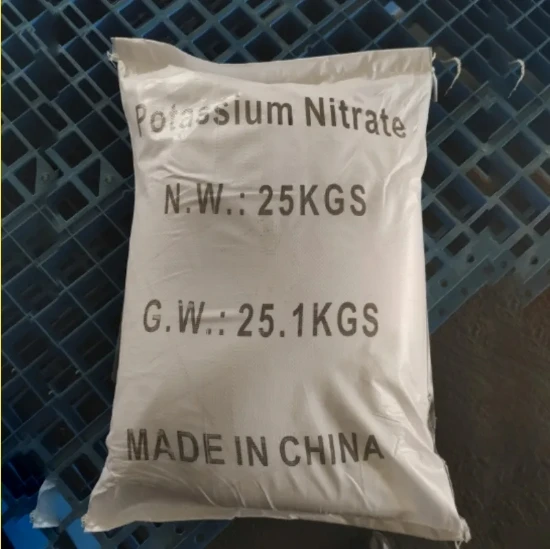
Food Additives You Should Steer Clear Of for Better Health
Food Additives to Avoid Prioritizing Your Health
In today's fast-paced world, convenience often trumps the nutritional value of the food we consume. Many processed foods are laden with additives designed to enhance flavor, preserve freshness, and improve texture. While some food additives are deemed safe, others raise concerns about their long-term health effects. This article highlights key food additives you might want to avoid for better health outcomes.
1. Artificial Sweeteners
Artificial sweeteners such as aspartame, sucralose, and saccharin are found in numerous diet and sugar-free products. While they are marketed as healthier alternatives to sugar, research has shown a potential link between these sweeteners and various health issues. Studies suggest that they may disrupt gut microbiota, contribute to metabolic disorders, and even lead to an increased craving for sweets. When possible, opt for natural sweeteners like honey or maple syrup, or use them sparingly.
2. High-Fructose Corn Syrup (HFCS)
High-fructose corn syrup is a sweetener made from corn starch that is commonly used in soft drinks, candy, and baked goods. HFCS is often criticized for its role in the obesity epidemic and related health issues. It is metabolized differently from glucose and may contribute to insulin resistance, fatty liver disease, and increased appetite. Instead of products containing HFCS, choose whole fruits or natural sweeteners.
3. Sodium Nitrite and Sodium Nitrate
These preservatives are commonly used in processed meats such as bacon, hot dogs, and deli meats to prevent bacterial growth and enhance color. However, when subjected to high heat during cooking, these compounds can form harmful nitrosamines, which are potentially carcinogenic. Opting for fresh or minimally processed meats can help reduce exposure to these additives.
4. Trans Fats
food additives to avoid

Partially hydrogenated oils are a primary source of trans fats in the diet, commonly found in margarine, snack foods, and baked goods. Trans fats are known to raise bad cholesterol (LDL) levels while lowering good cholesterol (HDL) levels, increasing the risk of heart disease. Many countries have implemented regulations to limit or ban trans fats in food products. Always check labels and choose items with 0 grams of trans fat.
5. Artificial Colors
Artificial colors, such as Red 40 and Yellow 5, are used to enhance the appearance of food products. Research has linked certain synthetic dyes to hyperactivity in children and other behavioral issues. Furthermore, some studies suggest a potential connection to allergic reactions in sensitive individuals. It’s advisable to stick to whole foods or products that use natural coloring agents such as beet juice or turmeric.
6. Monosodium Glutamate (MSG)
Monosodium glutamate is a flavor enhancer found in many processed foods, soups, and Asian cuisine. While the FDA considers MSG safe for consumption, some individuals report sensitivity to it, experiencing symptoms like headaches, nausea, and palpitations. If in doubt, choosing fresh, whole ingredients and preparing meals at home can help you avoid MSG.
7. BHA and BHT
Butylated hydroxyanisole (BHA) and butylated hydroxytoluene (BHT) are preservatives used to prevent fats and oils in foods from going rancid. They have been classified as potential carcinogens and are linked to endocrine disruption in some studies. To minimize your risk, check product labels and select items that do not contain these preservatives.
Conclusion
While food additives can enhance flavors, textures, and shelf life, many come with health risks that are worth considering. By being mindful of what you're consuming and opting for natural, whole foods whenever possible, you can significantly improve your diet. Always read ingredient labels and be aware of the additives present in your food. Making informed choices will empower you to lead a healthier lifestyle and mitigate the risks associated with harmful food additives. Prioritizing whole, minimally processed foods not only benefits your health but also encourages a more sustainable approach to eating.
-
The Safety Challenges of Ammonium Nitrate FertilizerNewsJun.26,2025
-
The Critical Role of Mining ChemicalsNewsJun.26,2025
-
Shelf Life of Glacial Acetic Acid Food GradeNewsJun.26,2025
-
Enhancing PVC Longevity with 1,2,3-Benzotriazole InnovationsNewsJun.26,2025
-
China’s Dominance in Food Additive ProductionNewsJun.26,2025
-
Can Aluminum Hydroxide Replace More Toxic Alternatives?NewsJun.26,2025
-
PE and PP Plastics with Benzotriazole AdditivesNewsJun.12,2025
Hebei Tenger Chemical Technology Co., Ltd. focuses on the chemical industry and is committed to the export service of chemical raw materials.
-

view more DiethanolisopropanolamineIn the ever-growing field of chemical solutions, diethanolisopropanolamine (DEIPA) stands out as a versatile and important compound. Due to its unique chemical structure and properties, DEIPA is of interest to various industries including construction, personal care, and agriculture. -

view more TriisopropanolamineTriisopropanolamine (TIPA) alkanol amine substance, is a kind of alcohol amine compound with amino and alcohol hydroxyl, and because of its molecules contains both amino and hydroxyl. -

view more Tetramethyl Thiuram DisulfideTetramethyl thiuram disulfide, also known as TMTD, is a white to light-yellow powder with a distinct sulfur-like odor. It is soluble in organic solvents such as benzene, acetone, and ethyl acetate, making it highly versatile for use in different formulations. TMTD is known for its excellent vulcanization acceleration properties, which makes it a key ingredient in the production of rubber products. Additionally, it acts as an effective fungicide and bactericide, making it valuable in agricultural applications. Its high purity and stability ensure consistent performance, making it a preferred choice for manufacturers across various industries.











